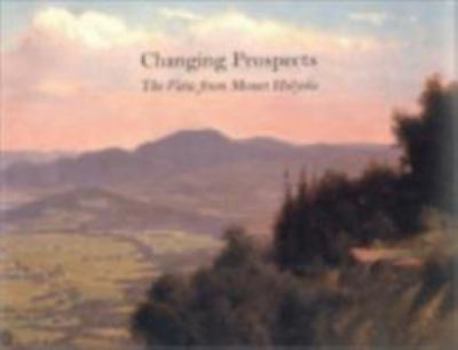Changing Prospects: The View from Mount Holyoke
Select Format
Select Condition 
Book Overview
Mt. Holyoke, which overlooks the Pioneer Valley of western Massachusetts, has been a tourist destination and an inspiration for artists and writers for almost two centuries. The view from its summit attracted the Hudson River School artist Thomas Cole among many others, including literary visitors such as Emily Dickinson, Ralph Waldo Emerson, and Nathaniel Hawthorne. In 1836, Cole created the most famous painting associated with the mountain, based on sketches he made during his visit to the site. The Oxbow, which is a centerpiece of this book and the accompanying exhibition, shows a thunderstorm sweeping across the sky above the mountaintop in contrast to the gardenlike pastoral scene in the valley below. It has been described as the most important American landscape painting of the nineteenth century. Frequent flooding, changing settlement patterns, and industrialization have all had a role in altering the view from the summit. The Oxbow became a closed loop bisected by a highway, and marinas punctuate the Connecticut River. From Cole's time to our own, artists including Edward Corbett, Stephen Hannock, Alfred Leslie, and Elizabeth Meyersohn have observed and recorded these alterations. Color plates of their paintings and photographs, reproduced in the book, allow us to track changes to the landscape and to Cole's influence. Contemporary artists both challenge and pay homage to his vision of the scene, even as their images are used to underline the need to preserve the mountain's natural beauty and cultural significance.





